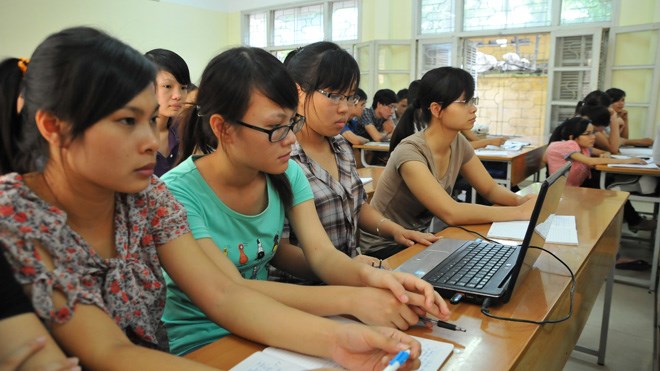
According to the ministry, 23 universities in the country have been applying 35 training curricula designed by 22 universities around the world.
To date, advanced programs have produced 3,601 graduates, including 255 excellent students (7.1 percent), 1,307 good (34.3 percent) and 1,707 fairly good (47.4 percent) students.
As trained under advanced programs, students are equipped well with theoretical and practical knowledge and good English skills.
They take the initiative in self-study, search for materials, and work in teams. They are also dynamic and self-confident in working in an international environment.
More than 40 percent of advanced program graduates continue studying to become university lecturers or researchers, thus helping improve the staff at universities and research institutes. They serve as a driving force for the renovation of Vietnam’s higher education.
The graduates of the Hanoi Medical School’s advanced program meet the requirements to work in Germany, thus helping improve the quality of Vietnam’s labor force in the context of international integration.
An education expert said that the initial achievements of the advanced program has a special significance in the context of high unemployment rate of university graduates. It is estimated that 200,000 workers with bachelor’s degrees are jobless, which is blamed on their weak professional capability and English skills.
|
23 universities in the country have been applying 35 training curricula designed by 22 universities around the world. |
However, MOET’s Minister Phung Xuan Nha admitted that two goals of the program remain unattainable. Vietnam still cannot attract international students and lecturers. Vietnamese educators have been cherishing the dream of ‘exporting’ education for many years. However, the achievements remain modest.
In order to attract foreign students, Vietnam needs to prove the high quality of training. Many problems still exist. It also needs to create favorable conditions for foreign students to live and study in Vietnam.
When asked to what scale MOET plans to extend the advanced program, Nha said this would depend on efficiency and sustainable investment orientation. In the immediate time, MOET plans to attract the participation of non-state universities.